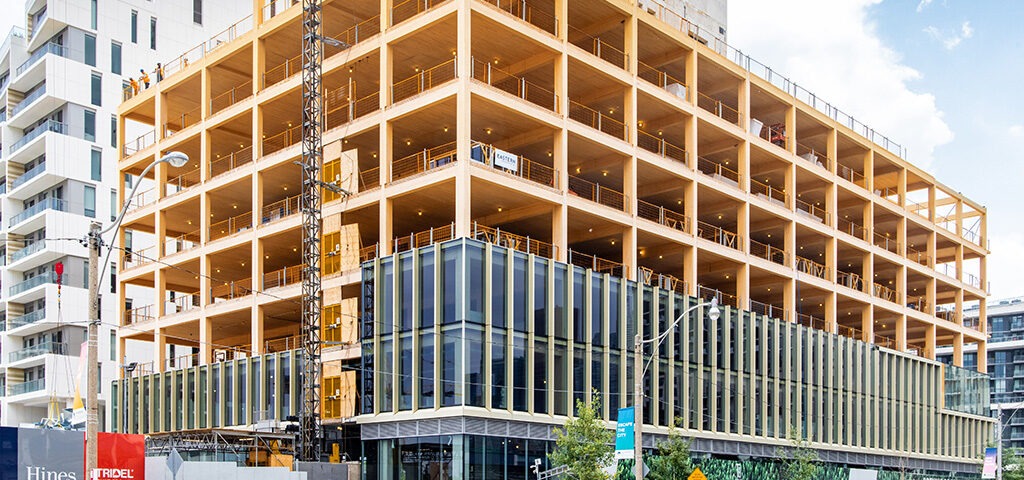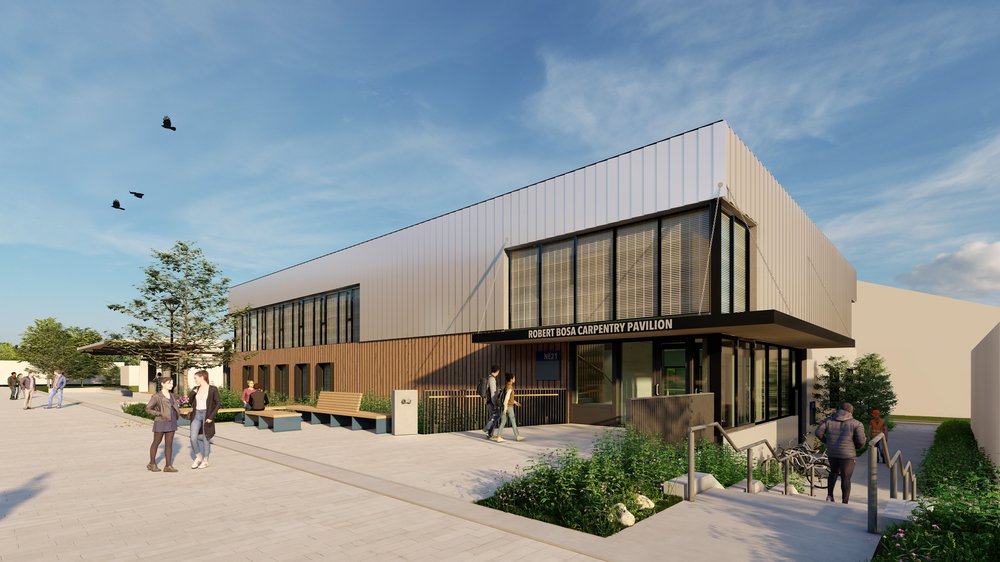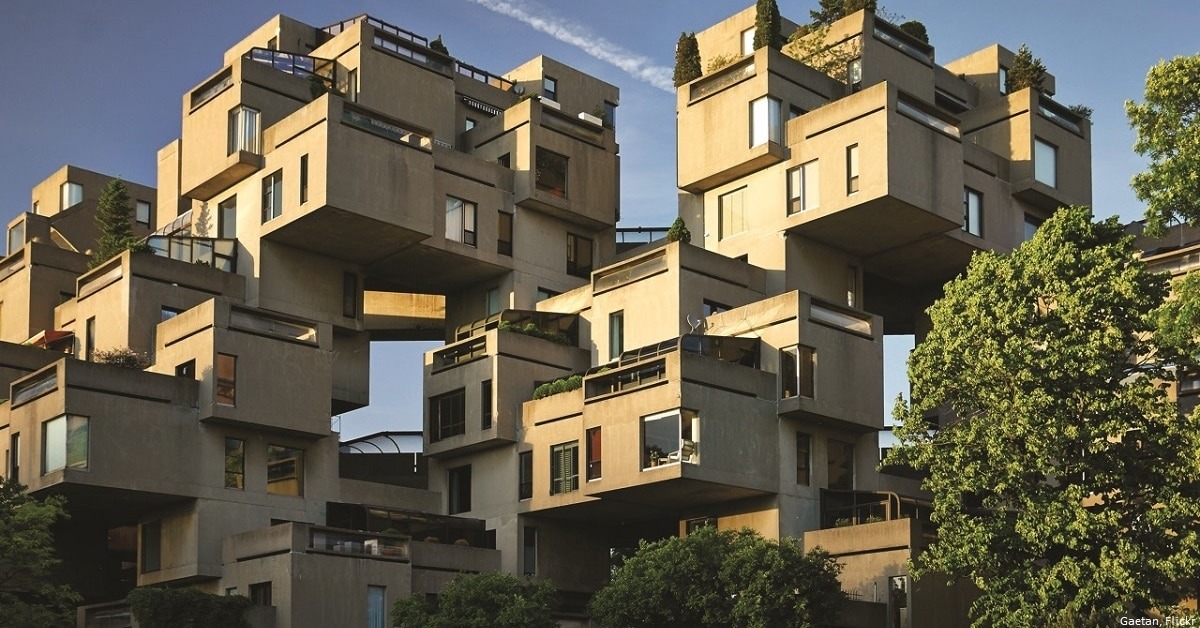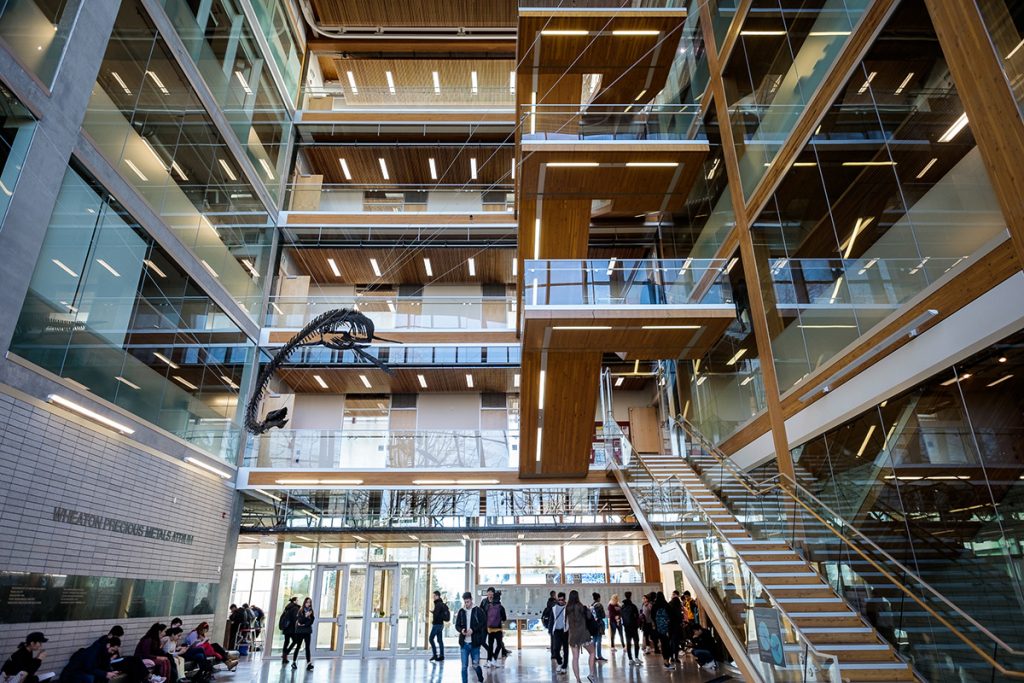
The Canadian government is making a significant push for sustainable construction by investing over $ 1.5 million into prefabricated wood building projects in British Columbia. This initiative aims to expand the use of Canadian timber in construction, promote sustainability, and strengthen the forestry sector while supporting the demand for new housing.
Developing new markets for Canadian wood not only benefits forestry workers and creates jobs but also helps Canada reduce emissions and increase housing availability. By prioritizing low-carbon, sustainable construction, the government is supporting both local communities and the environment.
Key Projects Receiving Federal Support
The funding comes through Natural Resources Canada’s Green Construction through Wood (GCWood) program and will be allocated to three major projects that emphasize sustainability and innovation in construction.
1. BCIT’s Robert Bosa Carpentry Pavilion ($ 995,000)
The British Columbia Institute of Technology (BCIT) is receiving nearly $ 1 million in federal funding to construct the Robert Bosa Carpentry Pavilion—a state-of-the-art, two-story facility designed to serve as a training hub for mass timber and hybrid construction techniques. The building will incorporate advanced sustainable design principles and showcase the potential of prefabricated wood in modern construction.

Sustainable Features and Design
The Robert Bosa Carpentry Pavilion is a «wood-first» structure, meaning that it primarily relies on mass timber components. Its key structural elements include:
- Glulam columns and beams — Engineered wood products that offer high strength and sustainability.
- Cross-laminated timber (CLT) panels — Used for floors, walls, and roofing to enhance structural integrity and reduce carbon emissions.
In addition to its innovative wood construction, the pavilion is designed to meet multiple environmental certifications:
- Zero-carbon standard — The building will operate with minimal emissions, supporting Canada’s climate goals.
- Passive House principles — High energy efficiency, superior insulation, and reduced heating and cooling costs.
- LEED Gold certification — A globally recognized mark of sustainability for energy-efficient buildings.
- Rick Hansen Foundation certification — Ensuring accessibility and inclusivity in design.
Impact on the Construction Industry
As Western Canada’s largest trades training provider, BCIT is taking a leadership role in sustainable construction education. The Robert Bosa Carpentry Pavilion will serve as a living lab, where students and industry professionals can gain hands-on experience with mass timber construction.
BCIT’s commitment to sustainability and innovation ensures that the next generation of tradespeople is equipped with the skills needed for a greener future in construction.
This investment in BCIT reinforces Canada’s push toward eco-friendly building solutions, demonstrating that prefabricated wood construction is not just an alternative—but the future of sustainable architecture.
2. Prefab Buildings Initiative ($ 300,000)
The Canadian government is investing $ 300,000 in the Prefab Buildings Initiative, a project dedicated to developing energy-efficient mass timber designs for a variety of building types. This initiative is a direct response to Canada’s housing shortage, aiming to make construction faster, more affordable, and more sustainable.
Standardized Designs for Faster Construction
The initiative focuses on creating and optimizing prefabricated building prototypes that can be rapidly deployed across Canada. These designs will serve as a blueprint for various multi-unit buildings, including:
- Affordable housing complexes — Helping address the urgent need for cost-effective housing.
- Senior residences — Offering comfortable, eco-friendly living spaces for aging populations.
- Hotels and apartment retrofits — Expanding and upgrading existing housing stock with sustainable materials.
By standardizing designs, the project streamlines the production process, allowing manufacturers to mass-produce prefabricated components for quick on-site assembly.

Collaboration to Strengthen the Industry
A key aspect of this initiative is fostering collaboration between manufacturers, architects, and policymakers. The project includes a design workshop where industry experts will refine building prototypes, ensuring they meet high-performance standards for energy efficiency and sustainability. <blockquote>By encouraging partnerships across the construction sector, this initiative is accelerating the adoption of prefabricated wood construction while boosting Canada’s domestic manufacturing capabilities.</blockquote>
A Sustainable Solution for Housing Challenges
Prefabrication significantly reduces waste, lowers construction costs, and cuts down on-site building time. The Prefab Buildings Initiative represents a major step forward in creating scalable, eco-friendly housing solutions, reinforcing Canada’s commitment to sustainable urban development.
3. Scius Advisory’s Prefabrication Directory ($ 219,870)
The federal government is allocating $ 219,870 to Scius Advisory for the development of an interactive online directory that maps out companies specializing in prefabricated construction across Canada. This digital tool aims to enhance industry collaboration, streamline access to green building materials, and accelerate the adoption of sustainable construction methods.

A Nationwide Resource for Builders
The Prefab Construction Navigator, as the directory is called, will provide a comprehensive database of over 800 companies involved in prefabrication. It will feature:
- An interactive map displaying locations of prefabrication facilities.
- Detailed company profiles showcasing expertise in mass timber, modular construction, and energy-efficient materials.
- A search function to help builders, policymakers, and developers find local suppliers quickly.
Driving Innovation in Sustainable Construction
By making information more accessible, the directory will help construction professionals source prefabricated components efficiently, reducing project timelines and promoting the use of eco-friendly materials. This tool will be especially valuable in scaling up sustainable housing projects and infrastructure development.
With the Prefab Construction Navigator, industry leaders and policymakers will have the insights needed to drive innovation, improve productivity, and expand the use of prefabrication across Canada.
A Step Toward a Greener Future
Prefabrication is a key strategy for reducing waste, lowering carbon emissions, and tackling housing shortages. Scius Advisory’s directory will act as a roadmap for the industry, ensuring that prefabricated construction continues to grow as a sustainable and efficient building solution.
A Step Toward Greener Construction
These investments reflect Canada’s commitment to sustainable building practices and housing innovation. By integrating prefabricated wood technologies into the construction industry, the country is not only addressing housing shortages but also reducing environmental impact and fostering economic growth. As more projects embrace mass timber and off-site construction, British Columbia is positioned to become a leader in green building solutions.

